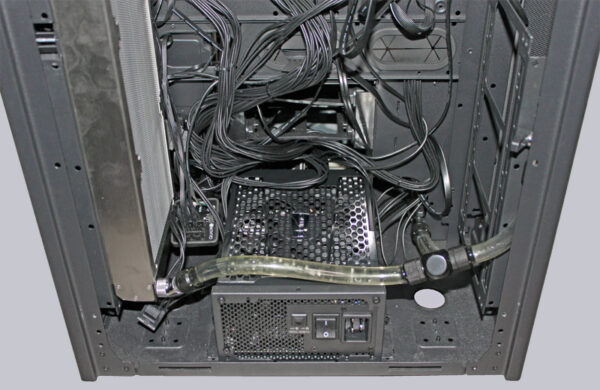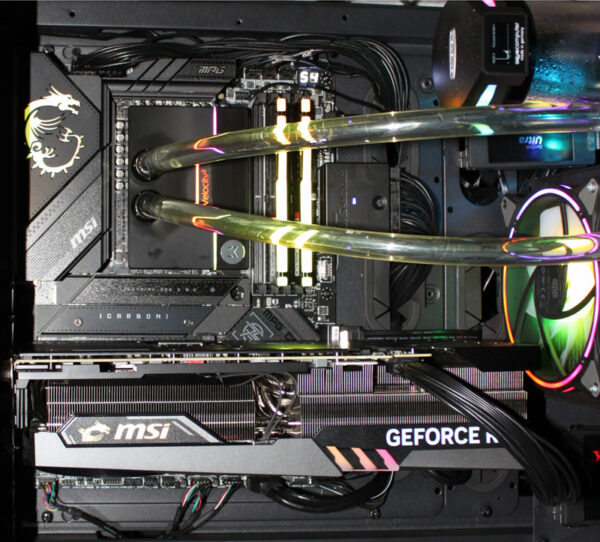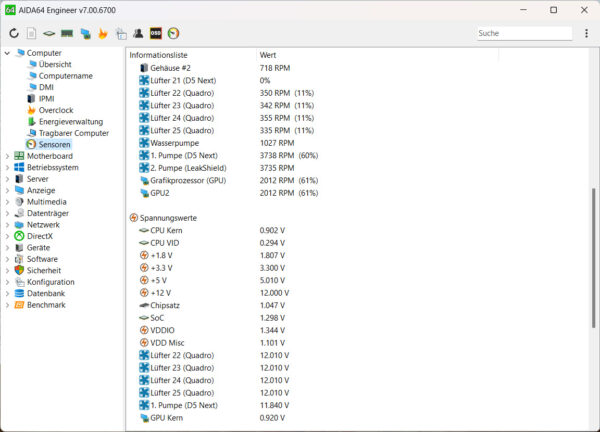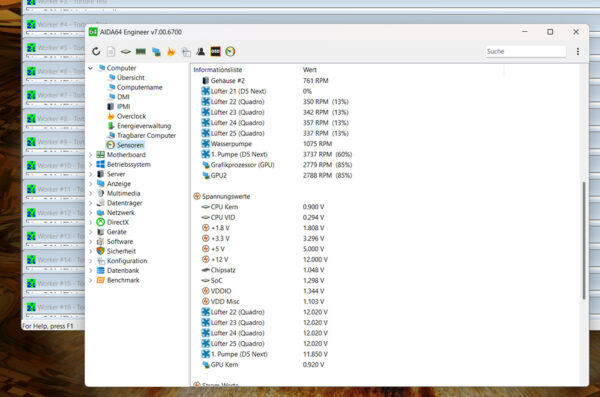
Practical testing …
Let’s put the PSU through its paces with the following system:
| Motherboard & BIOS | MSI X670E Carbon WiFi 1.B0 AGESA 1.0.9.0 |
| CPU | AMD Ryzen 9 7950 X3D |
| Graphics card | MSI GeForce RTX 4090 Gaming X Trio 24G |
| RAM | Kingston Fury DDR5-6000 EXPO 2 x 32 GB |
| SSD | WD Black SN750 NVMe 1 TB PCIe 3.0 x4 WD Black SN850X NVMe 2 TB PCIe 4.0 x4 4 x SATA SSD |
| Case | Thermaltake The Tower 900 |
| Cooler | Custom water cooling powered by Aqua Computer Airplex Quattro Radiator 480 + 4x BeQuiet Pure Wings 3 120 mm + 3 case fans 120 mm D5 Next pump with Leakshield and RGB ring CPU water cooler EKWB Velocity2 Quadro fan controller |
| Monitor | LG Ultragear 34GP950G-B 3440 x 1440 @ 180 Hz Overdrive |
| Operating system | Windows 11 23H2 22631.2715 |
Installation was rather difficult due to the limited space available for the PSU in The Tower 900. Although the housing is large, it offers a defined installation slot for the power supply, which is difficult to fit with cables already installed.

Beyond that, however, we had no reason to complain. The cables were all long enough and the plug connections were tight rather than too loose.

Let’s first measure the voltages in idle mode. If the PSU does not reach its nominal voltages at this point, it will be difficult to maintain the 5%+ deviations required by Intel under load. We were astonished that the voltages correspond quite exactly to the nominal voltages. Of course, this could also be due to the motherboard’s very good voltage regulation. However, if we look at the voltage values of the Quadro fan controller, which is connected directly to the PSU via Molex, this confirms the very good values of the PSU. We notice that we should check the cable of the water pump, because there are very slight voltage losses here 😉

But anyone can idle! So lay out the long belts … running Prime95 and Furmark in parallel should be enough to simulate sufficient load. We drew a whopping 642 watts from the PSU and even the fan started to spin. But what do the voltages say?

It’s amazing how the voltages hardly change at all, even under a load of just under 50 %. Only the 3.3 V rail shows a drop, but this can still be described as a measurement tolerance. The PSU cannot be detected in the background noise that is already prevalent in this benchmark.

Now we come to the conclusion.
Seasonic Prime TX-1300 ATX 3.0 PSU Result and general impression …

